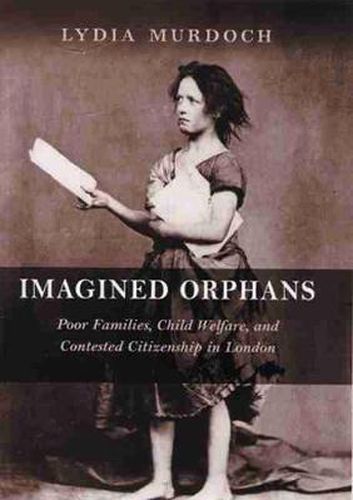Readings Newsletter
Become a Readings Member to make your shopping experience even easier.
Sign in or sign up for free!
You’re not far away from qualifying for FREE standard shipping within Australia
You’ve qualified for FREE standard shipping within Australia
The cart is loading…






With his dirty, tattered clothes and hollowed-out face, the image of Oliver Twist is the enduring symbol of the young indigent spilling out of the orphanages and haunting the streets of late-nineteenth-century London. He is the victim of two evils: an aristocratic ruling class and, more directly, neglectful parents. Although poor children were often portrayed as real-life Oliver Twists - either orphaned or abandoned by unworthy parents - they, in fact, frequently maintained contact and were eventually reunited with their families. In
Imagined Orphans , Lydia Murdoch focuses on this discrepancy between the representation and the reality of children’s experiences within welfare institutions - a discrepancy that she argues stems from conflicts over middle- and working-class notions of citizenship. Reformers’ efforts to depict poor children as either orphaned or endangered by abusive or
no-good
parents fed upon the poor’s increasing exclusion from the Victorian social body. Reformers used the public’s growing distrust and pitiless attitude toward poor adults to increase charity and state aid to the children. With a critical eye to social issues of the period, Murdoch urges readers to reconsider the stereotypically dire situation of families living in poverty. While reformers’ motivations seem well-intentioned, she shows how their methods solidified the public’s anti-poor sentiment and justified a minimalist welfare state that engendered a cycle of poverty. As they worked to fashion model citizens, reformers’ efforts to protect and care for children took on an increasingly imperial cast that would continue into the twentieth century.
$9.00 standard shipping within Australia
FREE standard shipping within Australia for orders over $100.00
Express & International shipping calculated at checkout
With his dirty, tattered clothes and hollowed-out face, the image of Oliver Twist is the enduring symbol of the young indigent spilling out of the orphanages and haunting the streets of late-nineteenth-century London. He is the victim of two evils: an aristocratic ruling class and, more directly, neglectful parents. Although poor children were often portrayed as real-life Oliver Twists - either orphaned or abandoned by unworthy parents - they, in fact, frequently maintained contact and were eventually reunited with their families. In
Imagined Orphans , Lydia Murdoch focuses on this discrepancy between the representation and the reality of children’s experiences within welfare institutions - a discrepancy that she argues stems from conflicts over middle- and working-class notions of citizenship. Reformers’ efforts to depict poor children as either orphaned or endangered by abusive or
no-good
parents fed upon the poor’s increasing exclusion from the Victorian social body. Reformers used the public’s growing distrust and pitiless attitude toward poor adults to increase charity and state aid to the children. With a critical eye to social issues of the period, Murdoch urges readers to reconsider the stereotypically dire situation of families living in poverty. While reformers’ motivations seem well-intentioned, she shows how their methods solidified the public’s anti-poor sentiment and justified a minimalist welfare state that engendered a cycle of poverty. As they worked to fashion model citizens, reformers’ efforts to protect and care for children took on an increasingly imperial cast that would continue into the twentieth century.